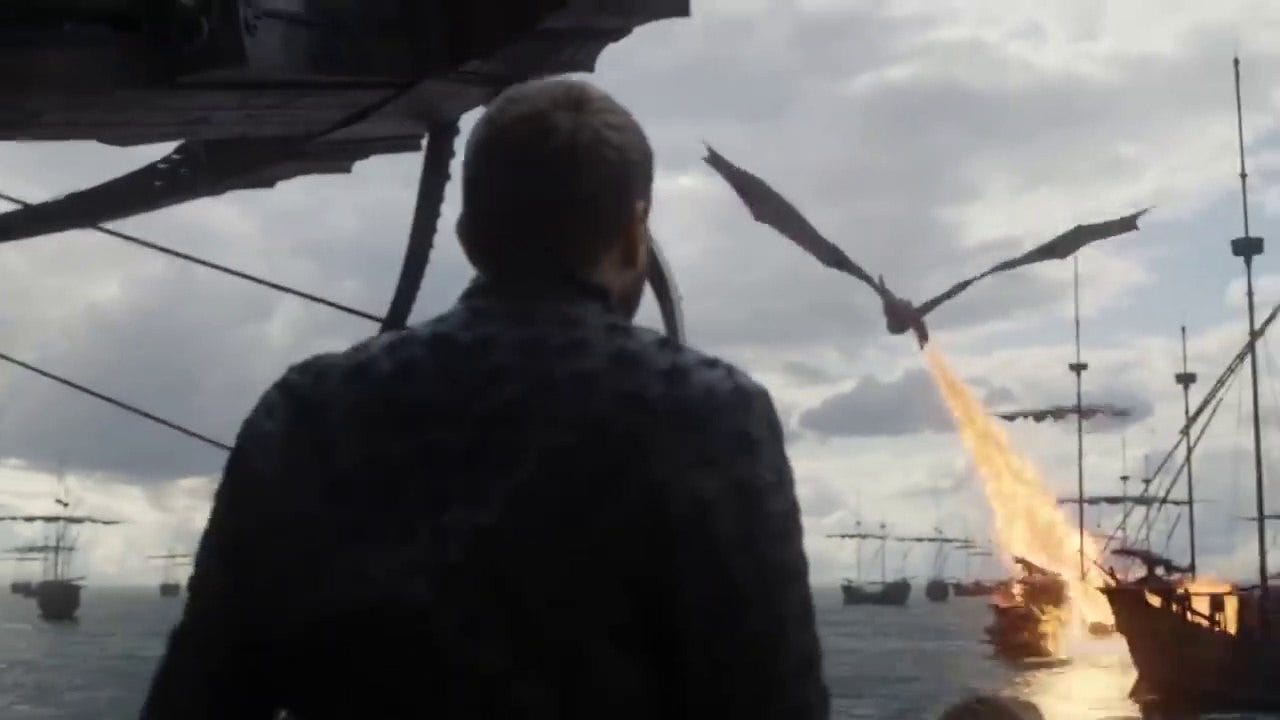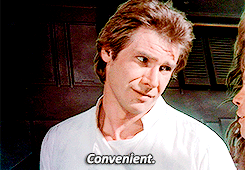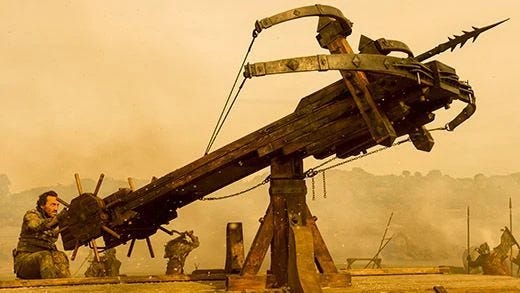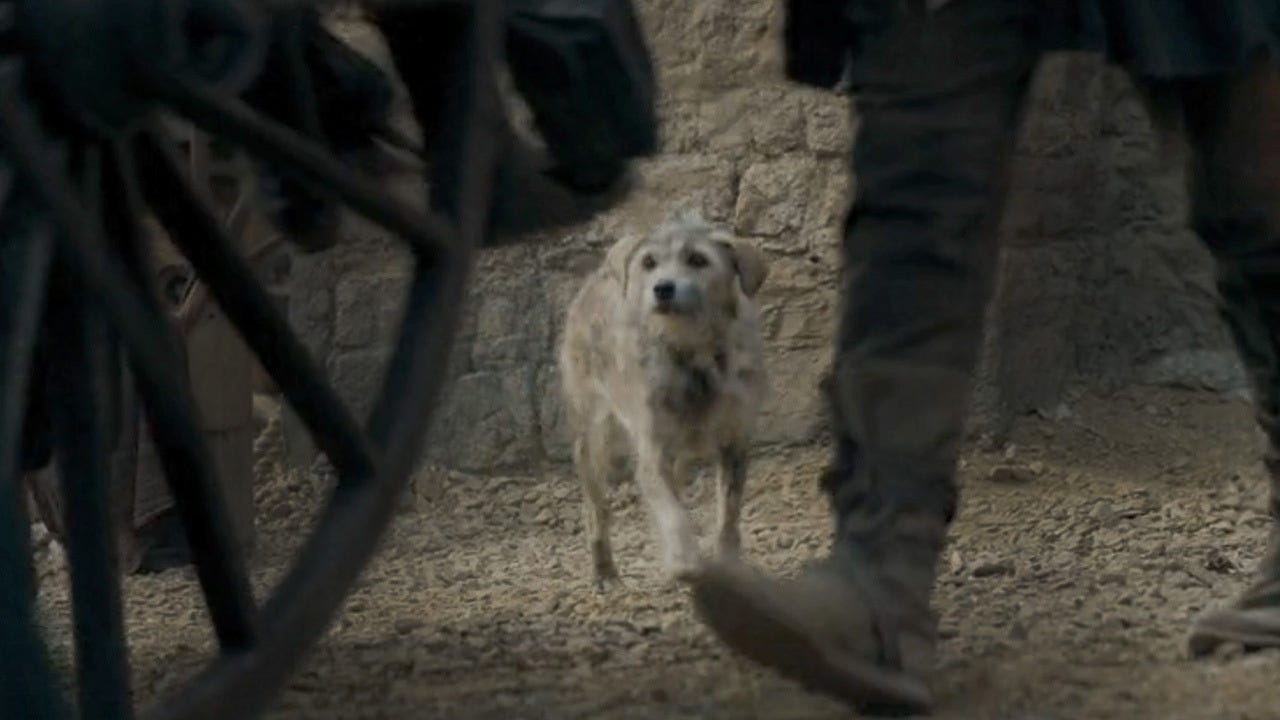House of the Dragon: A Miscellany of Plot-holes
Of low-quality politics, shoddy logistics, and shorthand characterisation
This post consists of snippets which are too short and too specific to be posts of their own, and more or less belong together, being thematically linked. The theme is that HotD is not very good.
For more of my critical writing about GRRM and HotD, click here.
Daemon's army
While Rhaenyra is messing around with vegetables and being undermined by all and sundry, her uncle-husband Daemon, resident bad boy and one of the few sources of humour in the show, is busy in the Riverlands, trying to raise an army. I may write more about Daemon another time1, but here want to focus purely on the logistics of his Season 2 plotline, and whether it makes any sense (it doesn’t).
Daemon's strategy to get the Riverlanders to support him is as follows:
He talks to the Blackwood family, who gladly sign up.
He talks to the Brackens, their feuding rivals, who refuse.
He threatens to burn the Brackens with his dragon, they don't budge.
He realises that the Brackens kind of rule, and he wants them on his side.
His strategy to do that is to set the Blackwoods on them.
The Blackwoods take Bracken hostages, forcing their relatives to join Daemon.
He is confronted by the other River Lords, because the Blackwoods were obviously acting on his behalf.
He salvages things by beheading the Blackwood leader.
Looking at this series of events, I see several problems:
a) How are the Blackwoods getting Bracken hostages in what appears to be weeks at most? The Brackens are a noble family, they have been feuding with the Blackwoods for centuries, and it's a time of high tension. Don't they have castles and troops to protect their people from this exact scenario? Aren't they on high alert? And if it was that easy, wouldn't the Blackwoods have done it already, without waiting for Daemon's say-so?
b) How was Daemon's involvement supposed to remain secret? If I capture a Bracken and ransom him, it looks like I did it for personal gain. If I capture a Bracken and demand that his relatives fight for King-Consort Daemon, it kind of looks like King-Consort Daemon put me up to it.
c) Is it really an advantage to have unwilling allies who hate your guts, and will turn on you the second they are able to recover their hostages?2
d) Shouldn't killing the Blackwood leader mean losing the Blackwoods? If so, isn't Daemon breaking even, sacrificing one family to gain one family, which are roughly equal in strength? And are the other Riverlanders really so oblivious that they see this fiasco, see Daemon's open disrespect of their Tully lord, see how he uses and discards the Blackwoods, and think ‘this guy seems completely trustworthy?’
Are they stupid?
It doesn’t seem like it, considering that they rightly called him out to his face, even dragging him out of bed in the middle of the night to confront him. So, not only are they not stupid, but they’re not afraid of him, and won’t be pushed around. They know that they collectively have bargaining power, and he won’t use his dragon on one of them because that would mean losing all of them, and he wouldn’t be here if he didn’t need them.
Actually, it looks to me like Daemon should be not only failing to break even in terms of support, but actually losing supporters, and pushing neutral families towards the Greens, since any onlooker is going to think ‘that guy is a menace, I’m not fighting to put him on the throne.’
(And in the Westerosi mind, Rhaenyra as queen certainly means Daemon as king, consort or not, because Westeros is a hardcore patriarchy, as we know. The reason people keep making digs about Daemon being ‘consort’ is because in this context, a man being subordinate to a woman is emasculating, and they know it pisses Daemon off3. His continued rejection of the ‘consort’ label signals very clearly that he has no intention of remaining his wife’s subordinate, and is using her to get to the throne.)
Despite all of these fairly obvious logical issues, Daemon is presented as having totally succeeded in the Riverlands, and now has the army Rhaenyra needs.
Dragons vs wooden boats
Another aspect that got on my nerves throughout Season 2 was the fact that the Velaryon fleet was able to blockade King's Landing with impunity, and with major plot ramifications, while for much of the season there were two active dragons in KL4. One of these dragons is Vhagar, who is several times the size of the next biggest dragon, and appears indestructible.
So, why don’t they just burn the Velaryon fleet?

This was discussed I think once in the whole season, in a scene in which Aegon suggests doing just that5, and is promptly told he’s stupid, because they don’t know the whereabouts of the Blacks’ dragons and need at least one dragon guarding the city at all times. This is not terrible reasoning, yet it didn’t stop Aemond from taking Vhagar to Rook’s Rest, nor has it kept him from going out to attack insignificant targets since, leaving the capital unguarded in the meantime. So, clearly the Greens are not that risk-averse, and the benefits of ending6 the blockade and destroying the Velaryon fleet would have been enormous, and far more than anything that was gained at Rook’s Rest, which involved similar risks for smaller rewards.
The possibility of attacking the fleet should absolutely have been argued about on-screen, robustly, and more than once. The fact that it isn’t is aggravated by the fact that we, the audience, know that the Blacks aren’t even using their dragons to guard the fleet (except Meleys, until she died), so it’s made all the more frustrating that the Greens won’t do the obvious thing that would solve so many of their problems straight away.
Apart from the risk to the city, and the risk of encountering other dragons while attacking the fleet (Vhagar would have the upper hand in any such fight, absolute unit that she is), the only other danger I can think of is that the ships might be armed with scorpions, which are siege weapons with a record of killing dragons in this setting.
However, this also doesn't seem like a major threat to a fully-grown dragon. According to the World of Ice and Fire book, the only time a dragon (Meraxes) was killed by a scorpion was basically a fluke and the result of Dornish plot armour, as the bolt hit the dragon directly in the eye while the dragon was in flight (!!!). Meraxes had been in dozens of battles before without injury, along with two other dragons, one Vhagar herself, that were never hurt in all their years of war. It has also been generations since then, and dragons continue to grow throughout their lives. So, Vhagar is even bigger, more dangerous, and harder to hurt now than she and Meraxes were then.
We also know very well that Aemond’s main character traits are being proud and angry, and he’s very aware that he has the strongest dragon. Would he not see a blockade of his city as a challenge and an affront? Wouldn’t he welcome the opportunity to test Vhagar’s mettle and his own against his hated relatives?
But the House of the Dragon can't actually use their dragons more than a couple of times per season, because that would be over budget, and would also resolve the political drama too efficiently. That being the case, we have to just pretend the blockade is dragon-proof (it’s not) and Aemond is extremely cautious (he isn’t).
The Ratcatchers
In another important incident, Daemon hires two thugs to kill Aemond, but indicates that if they can't find him, they should kill another Targaryen son. One of the thugs is a ratcatcher, who has access to the castle, and also a dog, who is given more screentime than some humans. It hangs around a lot after its owner's death to remind us that Aegon is bad, even though the owner was a child-murderer who used to kick said dog.
(Why does the dog represent the innocent ratcatchers when it’s attached to the one guilty ratcatcher? Is that good symbolism?)
Killing a royal toddler was not a great move on Daemon's part, in that it was a massive escalation and a source of outrage that could (and perhaps should) have been fatal to Rhaenyra's cause. However, I don't mind this aspect so much, because Daemon is basically a sociopath, and has repeatedly been shown to damage his own life and relationships with impulsive acts of violence, as real sociopaths do. Much of what Daemon does is counterproductive to achieving his own goals and desires, and his Need For Drama (an actual term in psychology) is off the charts. So, Daemon making bad choices seems perfectly in-character and legitimate, and I’m happy with it. Likewise, my issue with the Riverlands isn’t that Daemon is stupid, it’s that reality bends around him to make everyone else stupid, so that he can achieve his goals and Rhaenyra can have her army.
What I’m not so happy with is the Greens' reaction to the outrage. Otto Hightower, generally the smartest person on the king's council, is initially able to capitalise on the murder in a huge way, displaying the murdered prince's body to the commons. This goes well, apart from a meltdown/panic attack on Helaena's part, and it seems like the Greens have public opinion locked down.
Then, Aegon proceeds to hang all of the ratcatchers from the Red Keep, probably about ten or twelve men (it's a big keep). This collective punishment is absurd because it is so avoidable. Aegon's reasoning is that they don't know the identity of the killer, yet a) Helaena was present, and could easily have identified him, and b) the other assassin was caught, and could have been tortured for the information (if for some reason Helaena couldn’t tell). It seemed that he already had been tortured, but he didn't look much worse for wear, and wasn't held for long before being killed by Aegon.
This totally avoidable collective punishment causes Otto to have a massive rant, destroying his relationship with Aegon and throwing away all influence over the throne, which he had amassed over decades of careful work, in a few minutes. The scene is quite jarring to watch, despite Rhys Ifans' compelling performance, as it seems so out of character for Otto, always a cold, calculating, prudent man7, whose instinct in this situation should be to placate Aegon and make the best of a bad job. Otto's reasoning is that the ratcatchers are 'fathers and brothers and sons', and Aegon's cruelty has destroyed any political capital they gained.
The idea, then, is that Aegon's actions set the Greens back to square one, having gained nothing and appearing morally equivalent to the Blacks again, which sets the stage for the people to turn on them later with Cabbagegate.
For this to make sense, however, we have to take it for granted that all of the commoners are unanimously outraged by the execution of the ratcatchers. Wouldn't it be more natural for them to assume that the other ratcatchers were in on the conspiracy? Isn’t that what would have been announced at such an execution? Wouldn't at least some of the people's sympathies then still be with Aegon, as a grieving young father and the victim of a shocking crime, who was already somewhat popular with the people in the first place?8
Where is the normalcy bias and the just-world fallacy?9
Moreover, who said the prince's funeral was all for the benefit of the commoners of King's Landing, who have little power anyway? Wasn't it also meant for the nobles gathered at the king's court? Don't their opinions mean more politically? And aren't their sympathies more likely to have been with the royal family in the first place, rather than the ratcatchers? Who would nobles value more - some lowborn men, or a royal toddler?
So, essentially what happens is this:
Aegon loses a son, but gains a decisive political advantage.
Aegon punishes the ratcatchers collectively, despite having multiple witnesses who could identify the individual culprit.
This somehow alienates 100% of the city's populace.
This somehow means that all of Aegon's new support is lost, including that of the nobility.
Otto is therefore prepared to destroy his relationship with Aegon over this, to risk decades of work, and to lose his post to an inferior advisor, thus putting his whole family in danger.
Does this series of events make total sense?
The whole incident illustrates a fundamental problem with the show's conflict - when the Greens do something stupid, it benefits the Blacks. When the Blacks do something stupid (Daemon in the Riverlands, Rhaenyra's cabbage plot), it also benefits the Blacks. The Greens can't ever be smart or competent, because the writers won't let them, because that would further an anti-feminist agenda, because this is how the conflict is always framed.
Moon tea
This is a smaller point, originally part of an essay on Criston Cole, but is more at home here.
Alicent has moon tea (an abortion drug) delivered directly by the Grand Maester himself. I have no idea why you would source your contraband abortifacients from a powerful man you see every day in council meetings, and who could surely use that information against you, but nobody said Alicent was smart.
Not only that, but she leaves the large, highly incriminating moon tea pot in plain sight while receiving visitors. Larys Strong, the spymaster, notices this, which is evidently supposed to remind us that he is the cunning spy who knows everyone's business. In HotD, having the ability to notice an object in plain sight makes you a dangerous master spy.
In another show, I might be more forgiving, and excuse this as a matter of efficiency - after all, it had been two real-life years, and the audience needed to be reminded of who the characters are, so a certain amount of shorthand and simplification could be warranted. I would be more sympathetic to this explanation if the rest of the season hadn’t been so lethargic in pace, and so packed with redundant and repetitive scenes - it’s not like they had a ton of important stuff to get through. Also, Larys is so well performed (as are almost all of the main characters) that you don’t really need to have incidents like this to illustrate that he’s a cunning and observant man, the actor conveys that easily.
The scene also makes Alicent look incredibly careless and empty-headed, and as if she doesn’t take her reputation as a chaste woman seriously, despite being obviously deeply invested in her reputation as a chaste woman, on which her position at court and in society generally depends. I don’t think this is what the writers intended to convey with this scene, or what they want us to think of Alicent, but the clumsiness here and elsewhere10 points in that direction in a misleading way.
I have previously touched on what I dislike about his S2 storyline, namely that he gets a magical lobotomy, loses his ambition and arrogance, and becomes devoted to Rhaenyra due to a stupid prophecy, which is the same stupid prophecy that we all hated in GoT’s final season.
(see also: Hugh Hammer)
Because he is Prince Philip
Three total, but Helaena refuses to use hers.
He re-affirms his wishes in his throne room scene, saying he plans to send Vhagar out to burn the fleet.
Or even just disrupting. One sortie with Vhagar would likely be followed by panic, mutiny and desertion, and the blockade would become much harder to maintain.
Okay, he fell out with Viserys at one point, but so did literally everyone else in Viserys’ life.
(judging by his coronation, and also because he’s a man in opposition to a woman in Westeros)
Tl;dr, normalcy bias is the tendency to underreact to signs that something is wrong, and the just-world fallacy is the tendency to believe that we live in a fair world where people get what they deserve. Both of these biases, which are nigh universal, would favour Aegon - people would tend to underreact to the executions, and/or believe that they must be somehow justified.
She and Cole get walked in on within a few weeks of starting their affair, having left her door unlocked while he was suspiciously away from his post. Does it make sense for the show’s two most sexually uptight characters, who have the most to lose from their affair, to be so incautious about their affair?









The whole Alicent and Criston affair is so ridiculous, there's no subtlety and no attempt to hide their relationship, the show could have handled that so much better. Have them exchange glances and light touches without showing they are having sex until a dramatic reveal, keep it hidden from the audience a little longer so we have to wonder if that's what's going on or not, make them be very cautious about it so when Larys connects the dots it's actually impressive instead of Larys arriving at a conclusion that we already know is right. Idk, it's just another of the million things that was good in theory but in practice they completely fumbled it 🤦♀️
I just feel bad for the actors at this point. Their performances deserve a better story.